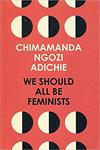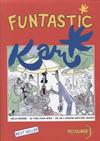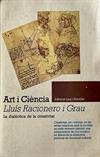
Never Let Me Go
1 journaler for this copy...
Arrived today from Zooba.com.
Ishiguro writes in a prose so controlled it seems to be under the restraint of something more profound than secret-keeping; from start to finish, each sentence of this novel bears the weight of an almost pathological reservation. Stylistically, it reminded me a little of Chang-rae Lee's A Gesture Life, except that Lee's narrator (occasionally) seems aware that he is unforthcoming with the depths of character that animate him, while Kathy does not. There is an atmosphere of pathos throughout Kathy's tale, but nothing keen enough to pierce the reader to the heart. It feels rather suffocating than moving.
The plot—Kathy and her friends are clones, created to feed an established economy of organ harvesting—seems like a sci-fi conceit, but this is not science fiction, any more than When We Were Orphans was a detective novel. It's closer to a sadistically ironic coming-of-age tale, which requires us to follow the mundane and frequently dull events of Kathy's childhood and young adulthood as we, and she, gradually come to understand that there is no adulthood drawing us forward, no age to come at which one will feel like a real person, and all the petty growing pains of childhood will become meaningful in retrospect. Kathy and her peers lead ephemeral lives that are just as ordinary as real lives. These individuals are not tragic poems that blaze brightly before disappearing too soon; they are simply conscious human beings whose horizon sits uncomfortably close. The novel might be mistaken for a dystopic fantasy of the future but for the fact that, though published in 2005, it locates the story in "England, late 1990s"—this is in fact a look back to a moment receding into the past. Perhaps what is so disturbing about Ishiguro's vision is that it turns our attention as if to something we missed along the way, but without delivering any epiphanies, undermining any illusions we might have been harboring, consciously or not, that beneath the surface of the everyday are great, shining truths or profoundly devastating tragedies. Instead, there is a persistant sense of longing, loss, and failure of understanding—the very things we sought to escape through insight. By novel's end, Ishiguro delivers us sadder, perhaps, but otherwise unchanged.
The plot—Kathy and her friends are clones, created to feed an established economy of organ harvesting—seems like a sci-fi conceit, but this is not science fiction, any more than When We Were Orphans was a detective novel. It's closer to a sadistically ironic coming-of-age tale, which requires us to follow the mundane and frequently dull events of Kathy's childhood and young adulthood as we, and she, gradually come to understand that there is no adulthood drawing us forward, no age to come at which one will feel like a real person, and all the petty growing pains of childhood will become meaningful in retrospect. Kathy and her peers lead ephemeral lives that are just as ordinary as real lives. These individuals are not tragic poems that blaze brightly before disappearing too soon; they are simply conscious human beings whose horizon sits uncomfortably close. The novel might be mistaken for a dystopic fantasy of the future but for the fact that, though published in 2005, it locates the story in "England, late 1990s"—this is in fact a look back to a moment receding into the past. Perhaps what is so disturbing about Ishiguro's vision is that it turns our attention as if to something we missed along the way, but without delivering any epiphanies, undermining any illusions we might have been harboring, consciously or not, that beneath the surface of the everyday are great, shining truths or profoundly devastating tragedies. Instead, there is a persistant sense of longing, loss, and failure of understanding—the very things we sought to escape through insight. By novel's end, Ishiguro delivers us sadder, perhaps, but otherwise unchanged.








